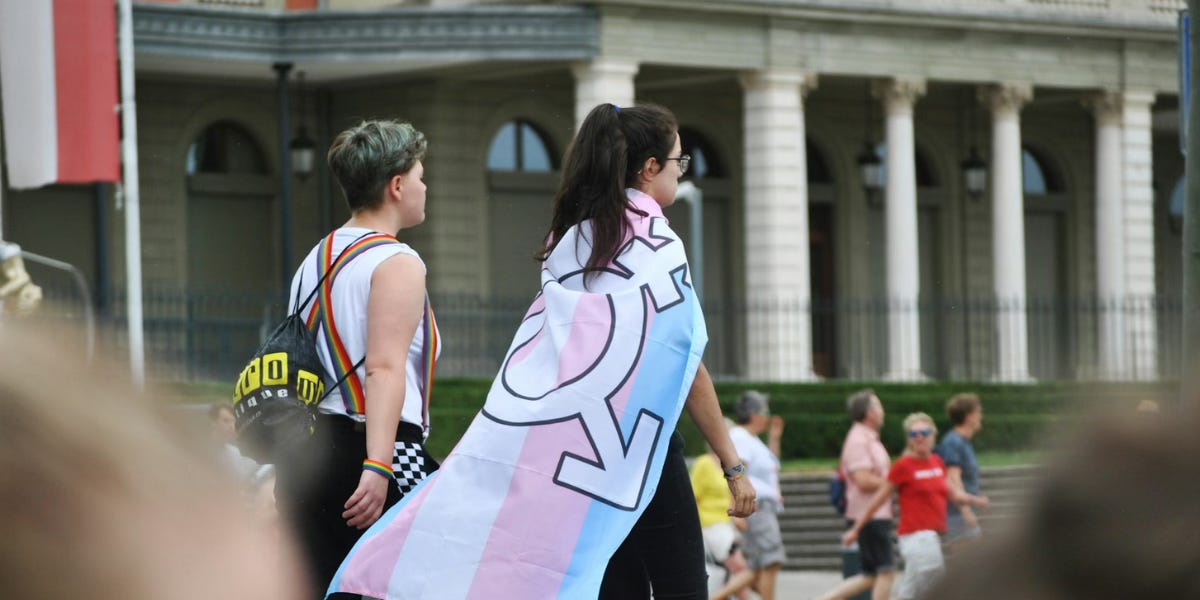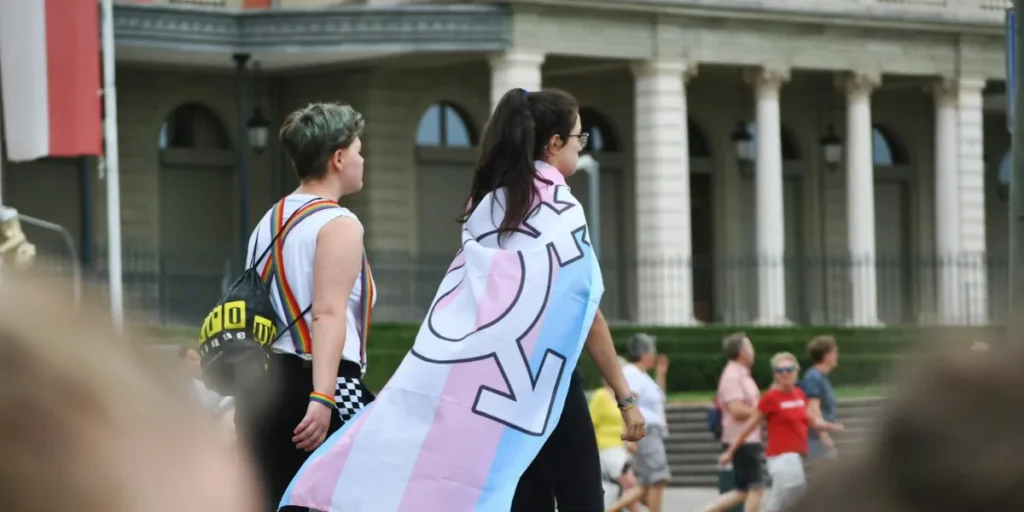Since the beginning of humanity, belonging to a group wasn’t just nice — it was necessary for survival. Early humans depended on their tribes for protection from predators, help with hunting, and shared shelter. Doing it alone often meant death. That’s why our brains became hardwired to feel safest in groups. We instinctively seek connection, community, and collective strength. Back then, being part of the group meant staying alive.
Fast forward to today — that ancient instinct is still with us. It’s just playing out on a different stage.
Take a high school cafeteria, for example. If you’ve seen Mean Girls, you know what that looks like. We’re not running from saber-toothed tigers anymore, but we are navigating a social jungle. Where you sit at lunch, who you follow online, what group chats you’re in, how you dress or talk — it’s all part of finding your “tribe.” The cafeteria table is the modern campfire.

But here’s the question: in a world where groupthink often replaces independent thought, have we stopped thinking for ourselves? Have we traded curiosity for comfort, letting others choose our beliefs, values, even our identity? Have we just sat down at the table and handed Regina George the reins?
Are We Thinking or Just Fitting In?
Psychologists have studied how group membership affects our thoughts and behaviours. Much of this research falls under the umbrella of in-group/out-group bias — the tendency to favor our own group while dismissing others.
Groups usually form around shared goals or values. But over time, something subtle — and dangerous — can happen: individual beliefs start to dissolve into group beliefs.
People stop thinking independently and start echoing the collective voice. What begins as shared values can morph into shared identity, until there’s no space left for dissent or self-reflection. This can escalate to the most idiotic cognitive error of all: people laying down their lives for random group identities.
This isn’t just theoretical. Military training, for example, goes far beyond teaching strategy. It fosters a sense of pseudo-family where soldiers become “brothers.” That bond is emotional, primal. And once it’s in place, loyalty can override logic.When the group is your identity, questioning it can feel like betraying yourself.
That’s the danger: group loyalty becomes so ingrained that it short-circuits critical thinking. And in extreme cases, people will die — or kill — for flags, ideologies, and imagined bonds. Not because they’ve reasoned it through, but because the group told them who they are, what to believe, and what’s worth sacrificing.
So if in-group bias distorts how we think, how can we trust our own beliefs? Are we easier to influence than we’d like to admit? Easier to control? And if we’ve stopped questioning our group, how long before we stop questioning anything at all?
The Group Chat Effect
In the 1970s, psychologist Henri Tajfel set out to explore just how easily group identities can form. His now-famous Minimal Group Experiment revealed something startling: even meaningless group labels can drastically alter behavior.
Tajfel randomly divided schoolboys into groups — sometimes based on arbitrary preferences for paintings, or even something as trivial as a coin flip. The boys knew the group assignments were random. Still, when asked to allocate points (which translated into real rewards), they consistently favored members of their own group.
And it went deeper than simple favoritism. The boys weren’t just trying to help their own team — they often chose to disadvantage the “other” group, even if it meant receiving fewer points themselves. There was no shared history, no real bond, no purpose — just a label. And somehow, that was enough.
If something as meaningless as a coin toss can shape how we treat others, what happens when the group divisions are loaded with emotion — politics, religion, gender, nationality, or ideology?
Once we align with a group, we often begin trusting its beliefs — not because they’re rational, but because they’re ours. Our loyalty can override logic, facts, and even personal doubts.
This isn’t just peer pressure. It’s an ancient survival mechanism — one that once protected us in tribal settings, but now plays out across social media, news cycles, and polarized discourse. We’re no longer hunting in the wild, but our brains still think we are.

Is Identity the New Tribe?
Here’s a question that might feel uncomfortable, but it’s worth asking:
Is the recent explosion of gender identities really about self-expression…or is it, at least partly, about belonging?
Today, there are now identities beyond male, female, transgender, or non-binary. Some people identify as animals, elements, abstract concepts — many of these rooted in niche online subcultures. Why now? Why didn’t this happen 20 or 50 years ago?
Some argue it’s a reflection of growing personal freedom. And in theory, that sounds empowering. But in practice, it often seems to come with confusion, fragmentation, and sometimes a quiet desperation for meaning.
As traditional sources of identity — religion, nationality, family — lose their cultural grip, people are left searching for something to replace them. Something that offers a sense of grounding, direction, and belonging.
But maybe that’s the point. Maybe identity isn’t just about defining who we are — maybe it’s about finding a place where we belong.
We live in a world where individuality is idolized.— where everyone is “special,” where standing out is more important than blending in. But in the pursuit of uniqueness, perhaps what we’re really craving is connection. Maybe these new identities aren’t always about inner truth — maybe they’re about not being alone.
These emerging identities often offer more than just self-expression. They offer community, language, ritual, and a sense of being seen. They can become tribes — with their own flags, terms, hashtags, and rules of inclusion. And once inside the tribe, the pull of belonging kicks in.
We adopt the vocabulary. We echo the beliefs.
We defend the group — sometimes aggressively.
And, as research on in-group/out-group bias shows, that can start to distort how we think. We stop questioning. We stop thinking. We follow.
So if this isn’t always about biology, then what is it about?
Could it be this — a deep need not to be alone? A need to feel different, but still connected?
This isn’t a dismissal of anyone’s identity or lived experience. Far from it.
It’s an invitation to pause. To think critically. To ask not just what someone identifies as — but why that identity matters to them. Because sometimes, what looks like radical self-expression…might actually be an ancient survival instinct dressed up in hashtags.
Thanks for reading Psychological Compass! Subscribe for free to receive new posts and support my workSubscribe
When Belonging Becomes a Blindfold
But this instinct to survive — to belong — might just also be our downfall.
And I get it. Identity, however we choose to define it, can feel like a warm blanket. It gives us strength. It holds us. It makes us feel safe in a world that often doesn’t.
But that same blanket? It can also suffocate.
Group identity — especially when tightly bound to emotion or morality — can quickly turn tribal. It becomes us versus them. It stops being about connection and starts being about separation.
And soon, the group’s opinions become your opinions.
The group’s enemies become your enemies.
And your critical thinking quietly slips out the back door.
Why do sports fans scream “we won” when they’ve never set foot on the field?
That’s pseudo-kinship — the deep, family-level loyalty we can feel toward people we’ve never met, just because we share a label. It’s why fans chant in stadiums. Why they paint their faces. Why they brawl over rivalries? It’s why politics becomes trench warfare. Why people defend ideologies they barely understand.
It’s not just irrational — it’s terrifyingly effective.
Because once the emotional bond forms, the brain doesn’t distinguish much between blood kin and ideological kin.
When loyalty outweighs logic, when identity becomes immune to critique, when questioning your group feels like betraying yourself — that’s when truth becomes tribal. And at that point, it’s no longer about right or wrong. It’s about staying in the group, at all costs.
It doesn’t mean those identities are fake or meaningless. But it does mean we should ask:
Are we thinking — or are we following?
Are we expressing who we are — or just joining a group that protects us from feeling alone?
Because once identity becomes immune to criticism, once questioning feels like betrayal, we stop growing. We stop examining. And we start conforming.
Maybe there aren’t a hundred genders.
Maybe there are a hundred ways to not feel excluded.
How to Stay You in a Crowd
If group identity gives us purpose and comfort — but also blurs our thinking and distorts our truth — then where does that leave us?
Maybe the real challenge isn’t choosing which group to join, but learning how to stay awake once we’re inside one.
We all want to belong. That instinct isn’t wrong — it’s deeply human. But somewhere along the way, belonging stopped being a feeling and started becoming an identity in itself. Something we protect, defend, and cling to… even when it no longer reflects who we are.
So how do we balance identity and individuality?
Can we find connections without outsourcing our critical thinking?
Can we belong without losing ourselves?
Are we ready to believe in something real — or are we just terrified of being alone?
In the end, maybe the question isn’t whether people can be male or female or somewhere in between. Maybe it’s not about who’s right or what label wins. Maybe the deeper question is this:
In a world where identity is everything — who are you when no one’s watching?




